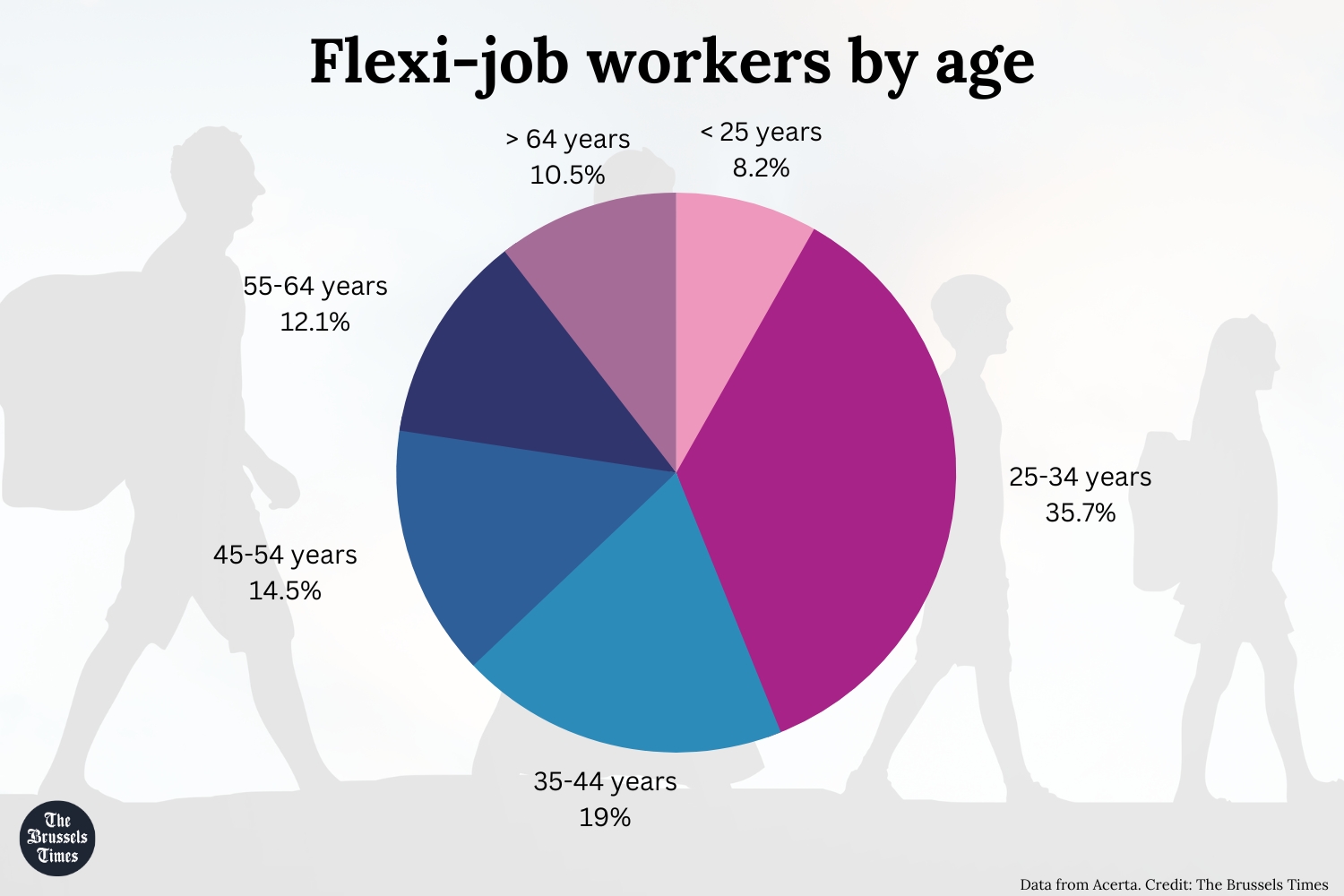The number of employees in flexible jobs – so-called flexi-jobs – in Belgium increased by 48% compared to last year's figures, according to a new study by HR services company Acerta.
Just over 7% of Belgian workers have a flexi-job, the survey found. Most of them work in hotels, restaurants and cafes, but increasingly more hires are made in the retail sector.
The survey analysed the data of 9,700 enterprises and 75,000 workers and found that this type of side-gigs is most popular among young workers. Over 43% of flexi-job employees are under 35 years old.
"We're seeing that young people don't like to settle into a job straight away. They give themselves time to find out what they really want, and the flexi-job concept suits them," said Amandine Boseret, a legal expert at Acerta. "At the same time, this is also the age group that has little or no financial reserves and often doesn't yet have children, so employment can take up more space."
A replacement for employment
Flexi-jobs are a form of zero-hour work contracts, for which employers pay only 25% of the standard contributions, without completely scrapping the social security of workers. They are open to retirees or professionals who have another job.
The minimum remuneration for these contracts is set at €11,81/hour, except for public medical workers that have a guarantee of €15,39/hour.
In theory, flexi-jobs are destined for people that have one main occupation but are looking for a side job. However, recently this type of work has come to replace ordinary employment. In 2019, the Belgian Court of Audit found that 35,5% of flexi-jobs were not new jobs, but were positions previously held by workers with another employment status.
According to a 2022 ULB study, this shift is happening because the employment status of 'flexi-workers' is not checked in real-time, and because employers are "splitting an ordinary job across several flexi-jobbers".
Deregulated work like the 'flexi-job' forms risk replacing fixed contracts, labour sociologist Esteban Martinez-Garcia told Le Vif earlier this month. Martinez-Garcia explains that flexi-work chips away at better forms of employment, which also provide collective work conventions.
"These schemes only serve to amplify the period of professional transition for young people, and creating a feeling of precariousness," the ULB sociologist told Le Vif.
What are the 'flexi' industries?
At the end of last year, there were 108,074 flexi-job workers in Belgium, according to data from the National Social Security Office (ONSS).
The most common main occupation for workers who have a flexi-job on the side was in the commerce and auto-repair sector. Several other industries reported over 10,000 workers that take up side jobs, including manufacturing, public administration and education.
Flexi-job contracts can be implemented in certain industries. The working scheme started as a way to discourage the practice of undeclared work in the Horeca sector, but the list of professions that are allowed to use such contracts continues to expand.
Since January 2023, certain healthcare workers are also eligible for flexi-jobs, as well as employees in the arts sector. These additions are not responsible for the increasing popularity of this type of employment, the Acerta report determines that for the first three months of the year, only 0,06% of medical staff and 1% of arts workers opted for a flex-jobs.
Related News
- Four in ten Belgians want to quit their jobs, survey says
- Best in Europe: Over half of Belgians satisfied with work-life balance
- Chronic unemployment: One in six jobseekers without work for over 5 years
The proportion is the highest in the Horeca sector, as nearly a quarter (23%) of workers have a flexi-job according to the Acerta survey. Even so, the biggest growth was registered among retail workers in enterprises with less than 50 employees: 8% of workers in this field are on a flexi-job contract, which marks a 50% increase from a year ago.
"The success of flexi-jobs is linked to the labour shortage, which persists today and incentivizes companies to rely on flexi-job workers."


